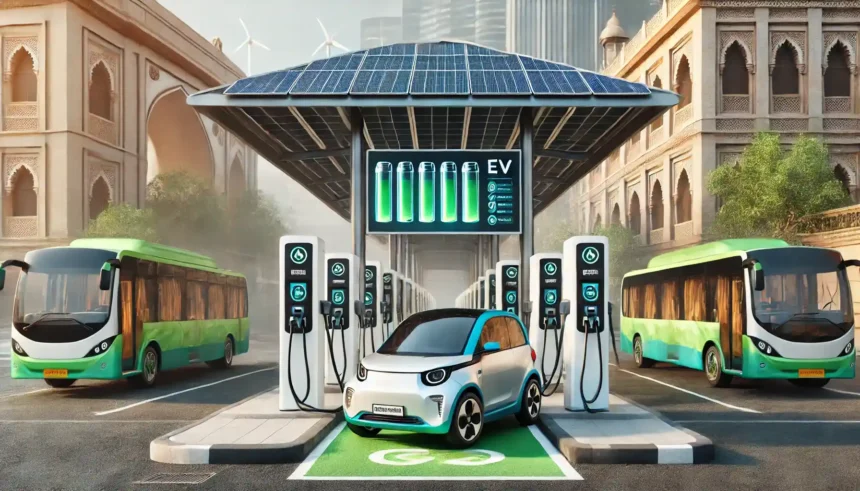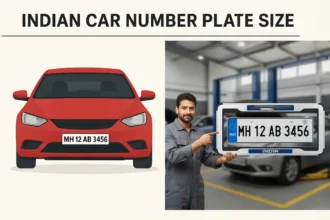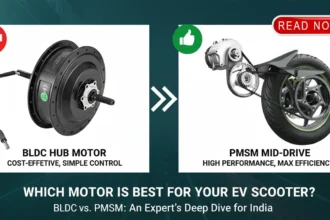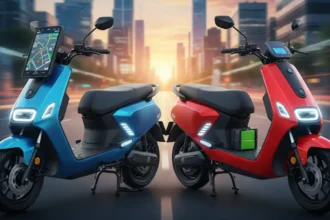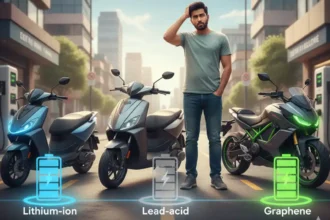Everything You Need to Know About Electric Vehicle Charging Stations in India
Electric vehicles (EVs) are no longer a dream of the future; they are quickly becoming a reality in India. With the government pushing for cleaner and greener transportation, electric vehicles are gaining popularity. But for EVs to succeed, one crucial element is needed: charging stations. In this post, we will explore everything about electric vehicle charging stations in India, including the companies involved, the types of chargers available, and how the country is preparing for an electric future.
Electric Vehicle Charging Companies in India
India is home to several companies that are working hard to build a network of electric vehicle charging stations. These companies are playing a key role in making EVs more accessible and convenient for everyone. Some of the top electric vehicle charging companies in India include:
- Tata Power: Tata Power is one of the leading players in the EV charging space. They have set up charging stations in many cities and are expanding rapidly.
- Fortum: A Finnish company, Fortum has partnered with Indian Oil Corporation to install fast-charging stations across the country.
- Magenta Power: This Indian startup is focused on building affordable and efficient charging solutions for EVs.
- ABB India: A global leader in EV charging technology, ABB is working on installing fast chargers in India.
- Ather Energy: Known for its electric scooters, Ather Energy is also building its own charging network called Ather Grid.
These companies are not only setting up charging stations but also working on innovative solutions to make charging faster and more efficient.
Electric Vehicle Charger Manufacturers in India
Just like charging companies, there are several manufacturers in India producing electric vehicle chargers. These chargers come in different types and speeds, catering to various needs. Some of the top electric vehicle charger manufacturers in India are:
- Exicom Tele-Systems: Exicom is one of the largest manufacturers of EV chargers in India. They produce both AC and DC chargers for homes and public spaces.
- Okaya Power: Okaya is a well-known brand in the power sector and has entered the EV charging market with a range of chargers.
- Delta Electronics India: Delta offers advanced charging solutions for electric vehicles, including fast chargers.
- Mass-Tech Controls: This company specializes in manufacturing EV chargers and battery management systems.
- Lucas TVS: A trusted name in the automotive industry, Lucas TVS has also started producing EV chargers.
These manufacturers are ensuring that India has the right infrastructure to support the growing number of electric vehicles on the road.
Types of Electric Vehicle Chargers
Electric vehicle chargers come in different types, each with its own charging speed and use case. Here are the main types of EV chargers available in India:
- Slow Chargers (AC Chargers): These chargers are commonly used at homes and workplaces. They take 6-8 hours to fully charge an EV but are cost-effective and easy to install.
- Fast Chargers (DC Chargers): Fast chargers are usually found at public charging stations. They can charge an EV up to 80% in just 30-60 minutes.
- Super Fast Chargers: These are the fastest chargers available and are ideal for long-distance travel. They can charge an EV in as little as 15-20 minutes.
The type of charger you need depends on your driving habits and the availability of charging stations in your area.
Government Initiatives for EV Charging Stations
The Indian government is actively supporting the growth of electric vehicles and charging infrastructure. Some of the key initiatives include:
- FAME India Scheme: The Faster Adoption and Manufacturing of Hybrid and Electric Vehicles (FAME) scheme provides subsidies for setting up EV charging stations.
- National Electric Mobility Mission Plan (NEMMP): This plan aims to achieve national fuel security by promoting electric and hybrid vehicles.
- Partnerships with Oil Companies: The government has partnered with companies like Indian Oil and Bharat Petroleum to set up charging stations at petrol pumps.
These initiatives are helping to create a robust network of charging stations across the country.
Challenges in Setting Up EV Charging Stations
While the growth of EV charging stations is promising, there are still some challenges that need to be addressed:
- High Initial Cost: Setting up charging stations requires a significant investment, which can be a barrier for small businesses.
- Lack of Standardization: Different EVs use different types of connectors, making it difficult to create universal charging stations.
- Power Supply Issues: Many areas in India still face power shortages, which can affect the reliability of charging stations.
- Land Availability: Finding suitable land for charging stations, especially in crowded cities, can be a challenge.
Despite these challenges, the future of EV charging stations in India looks bright, thanks to the efforts of the government and private companies.
Benefits of Electric Vehicle Charging Stations
Electric vehicle charging stations offer several benefits, not just for EV owners but for the environment as well:
- Convenience: With more charging stations, EV owners can travel longer distances without worrying about running out of power.
- Reduced Pollution: EVs produce zero emissions, and charging stations powered by renewable energy can further reduce carbon footprints.
- Cost Savings: Charging an EV is cheaper than refueling a petrol or diesel vehicle, leading to significant savings over time.
- Job Creation: The growth of EV charging infrastructure is creating new job opportunities in manufacturing, installation, and maintenance.
Future of Electric Vehicle Charging Stations in India
The future of electric vehicle charging stations in India is promising. With the government’s support and the efforts of private companies, the number of charging stations is expected to grow rapidly. Innovations like solar-powered charging stations and battery swapping technology are also on the horizon, making EVs even more convenient and sustainable.
As more people switch to electric vehicles, the demand for charging stations will continue to rise. This will not only help reduce pollution but also make India a leader in the global EV market.
Conclusion
Electric vehicle charging stations are the backbone of India’s electric mobility revolution. With the government’s initiatives and the efforts of private companies, the country is well on its way to building a robust charging infrastructure. While there are challenges to overcome, the benefits of EVs and charging stations far outweigh the drawbacks.
As more charging stations are set up across the country, the dream of a cleaner, greener, and more sustainable future is becoming a reality. So, whether you already own an electric vehicle or are planning to buy one, rest assured that India is charging ahead towards an electric future.
FAQs
How many EV charging stations are there in India?
India has over 5,000 public EV charging stations, and the number is growing rapidly.
How long does it take to charge an electric vehicle?
It depends on the type of charger. Slow chargers take 6-8 hours, fast chargers take 30-60 minutes, and super-fast chargers can charge an EV in 15-20 minutes.
Are EV charging stations free in India?
No, most charging stations charge a fee, but the cost is still lower than refueling a petrol or diesel vehicle.
Can I install a charging station at home?
Yes, you can install a slow charger at home, but you may need permission from your electricity provider.
Which cities have the most EV charging stations?
Cities like Delhi, Mumbai, Bengaluru, and Hyderabad have the highest number of EV charging stations in India.

